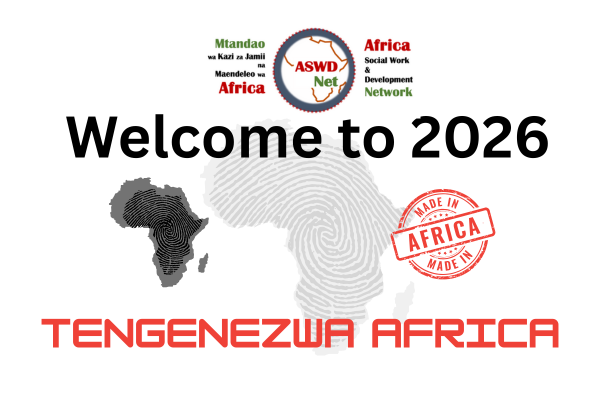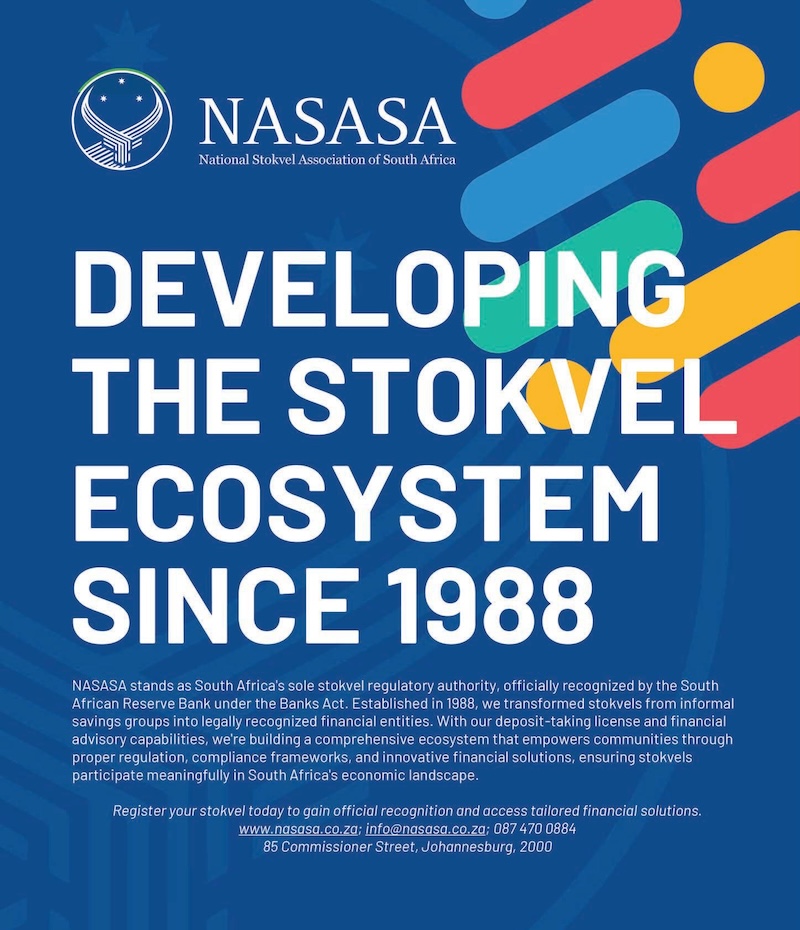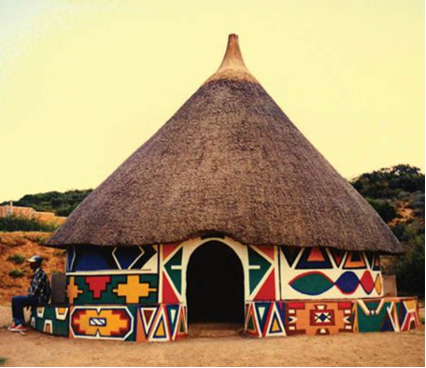
African Independent Ethics Committee (AIEC)
Why the AIEC?
Many researchers in Africa submit work without ethics review, advice, or approval, often viewing institutional ethics boards as irrelevant, obstructive, or poorly aligned with their research realities. These boards are commonly seen as slow, costly, colonising, and insensitive to community-based or indigenous methodologies. A closer look at the ethics boards of many universities and research centres across the continent reveals that their frameworks remain deeply rooted in Western ethical codes. This is evident in the codes they reference, the literature they cite, and the core values they prioritise. African philosophical frameworks—particularly Ubuntu—are often ignored or excluded. Ubuntu, as a local philosophy, centres values such as reciprocity, relational accountability, and communityness. The absence of these values in dominant ethics models results in standards that may not align with African worldviews, lived experiences, or knowledge systems. The continued reliance on external norms raises concerns about the relevance, legitimacy, and accessibility of institutional ethics review in African contexts.
To address these challenges, the African Independent Ethics Committee (AIEC) was established in 2020 to offer ethical guidance grounded in African realities. The AIEC has members from several countries and disciplines, and while it currently offers ethics advice, it will begin issuing ethics approval once it is fully constituted. The guiding philosophy is that ethics advice—especially when rooted in African values—is far better than having no ethical oversight at all, or being subject to rigid, colonising systems that fail to reflect the complexity and richness of African contexts. The AIEC promotes contextual relevance by developing and applying ethical standards that reflect Ubuntu, affirming African moral traditions and worldviews that institutional boards often neglect. It protects African participants and communities by ensuring informed consent, dignity, and community consultation in ways that are meaningful and locally appropriate. The committee also advances the decolonisation of ethics oversight, empowering Africa to set its own standards and reduce reliance on external (often Global North) review boards, thus promoting epistemic justice. By providing a pan-African ethical framework, the AIEC strengthens regional collaboration in cross-border research on issues such as health, education, and migration. Furthermore, the AIEC fosters accountability and transparency by offering independent review, mentoring students and early-career researchers, and encouraging the use of institutional ethics structures. Through initiatives like promoting the San Code of Ethics—largely overlooked by traditional boards—the AIEC is reshaping the culture of research ethics in Africa to be more inclusive, grounded, and just.
The AIEC solution
Based on data collected between 2013 and 2019, most researchers in Africa do not have access to an Ethics Committee. As such, we have designed a platform to provide independent ethics advice to researchers. To apply for our Ethics Advice, use the form below. Before you apply, read information about African Ubuntu ethics in research and our terms and conditions of use provided on this page. To submit your application, please provide all the details specified below and click Submit.
For researchers wanting to or already doing research in Africa, it is important to get ethics advice or ethics approval. This is important so that you protect our communities, and that you also get protected. At times external researchers dump research ethics in Africa, an unethical practice on its own. Others only get ethics approval from an external country yet local ethics are very important.
We provide ethics advice to:
- African research institutions, organisations and individual researchers (Africa)
- Research institutions, researchers including students outside Africa (Outside Africa)
- African research students including honours, masters and doctoral students researching in Africa (Africa)
Retrospective applications
A retrospective application is a request for ethical review submitted after a research activity has already commenced or been completed. It seeks guidance on how to ethically store, use, disseminate, and report findings—particularly in ways that respect and involve the communities concerned—and to strengthen ethical practice in future work.
As the AIEC, we allow retrospective applications because we recognise that some researchers may not have had access to an active or functioning ethics committee at the time of their research. In some institutions, ethics boards may be inactive, under-resourced, or non-existent. In other cases, research may emerge from student projects or practice-based work that begins informally or without prior ethics advice or approval. By accepting retrospective applications, we aim to uphold ethical accountability, encourage responsible use of knowledge, and support the development of ethical standards across diverse research and practice contexts.
Officer and Advisors
Olabisi Adebawo, Nigeria (Ethics Officer)
Megersa Tolera, Ethiopia (Ethics Advisor)
- Receive applications: Log an ethics application number and ensure all required information is submitted.
- Check compliance: Conduct an initial review to check compliance with submission and ethical requirements.
- Communicate with AIEC: Share the application with ethics committee members securely via agreed document sharing application.
- Liaison between applicants and AIEC: Relay queries and coordinate responses during the review process.
- Issue outcome letters: Prepare and issue outcome letters to applicants after the committee’s decision.
- Reporting: Requesting, communicating and filing reports from applicants at required intervals.
Committee Members
African Independent Ethics Committee Members:
Dr. Tracy B. E. Omorogiuwa, MSW (Ibadan), PhD (Johannesburg).
Dr Witness Chikoko, BSW, MSW, PhD (University of Zimbabwe).
Dr Kabo Diraditsile, PhD (Botswana)
Dr Rugare J. Mugumbate, BSW, MSW (University of Zimbabwe), PhD (University of Newcastle) (Zimbabwe)
Mr Stanislaus Matindike (Zimbabwe)
Mr Vivek Urjon (Mauritius)
Augustina Naami, PhD, University of Ghana (Ghana)
Michael Adedotun Oke (Nigeria)
Mr Francis Maushe, Bindura University (Zimbabwe)
Nkaaka Murenzi (Rwanda)
Patronella Marukutira (Zimbabwe)
Kim Carter, PhD (United States of America)
Frieda Kagola (Namibia), Master’s degree in Social Work, University of Sydney, Australia
Professor Linda Harms-Smith, PhD, University of Pretoria (South Africa)
Zukiswa Nzo, National Council of and for Persons with Disabilities (NCPD), South Africa
Call for additional committee members
The AIEC is expanding requires more committee members. Nominations should be emailed to asw@africasocialwork.net for these remaining positions:
1. African cultural experts
2. African indigenous leader (e.g. village leader, Chief or King)
3. Spiritual leader (African spirituality, Christian spirituality or Islamic spirituality)
4. A health worker (medical doctor, nurse, public health worker etc)
5. A legal person
6. An primary or secondary school teacher
7. Media person
Ethics Training (Research Ethics Course)
Complete this online course and get a certificate.

Fees and exemptions
Although we review and provide ethics advice most of the time for free, we often reserve this free service to students and early researchers. We charge a very modest fee for research generated in Africa and that generated outside so that we keep our hardworking reviewers motivated by compensating for their time and resources. Our fees are as follows. At times, a discount can be given.
| Category | Fee |
| Diplomas, bachelors, honours or masters students | Free |
| Phd/Doctorate students and Early/Emerging Researchers/Academics | Waiver or Discount |
| Research initiated in Africa, led by an African institution | ZAR900 Discount and limited waivers available |
| Research initiated outside Africa, led by a non-African institution | ZAR1500 Discount available |
| Any other | Please check with us |
San Code of Research Ethics
The San Code of Research Ethics (San Code).
African Research Ethics and Malpractice Statement (AREMS)
African Research Ethics and Malpractice Statement (AREMS)

Eight Basic Ubuntu Ethics in Research
The eight basic ubuntu ethics that we are concerned with in research are:
- Value for Family (unhuri, familyhood)- families are an integral part of African society. While research usually focuses on individuals, these individuals must be viewed as part of families. A full and trusted story usually involves the family.
- Respect for Community (ujamaa, ‘communityhood’)- research should promote African ‘communityhood’, uniting people and using local resources and compensating communities adequately. Local protocols should be respected, recognized and followed.
- Decolonising – for years research languages, ethics, methods, philosophy, epistemology and ontologies have prioritized western knowledge. Present day research must prioritize African perspectives.
- Developmental and capacity building research – funders and researchers, including African governments must be seen to be promoting growth of African research capacity. This means strengthening the work of African researchers and research institutions. Knowledge transfer is a key element when we assess externally driven research.
- Sustainable research – research must build capacity of African researchers and African institutions to research on their own and not to be dependent on people from outside perpetually.
- Justice – adequate recognition of co-researchers, communities, assistants contributors, facilitators and guides. Compensations should be just.
- Value for life – every component of research must not result in harm, disease, impairment or loss of life.
- Protection of most vulnerable populations – these include children, people with disability, people who are unable to read the language of the research, people with a mental illness, people with adequate income, people from strong spiritual backgrounds, elderly people, people in rural communities, young women and poor people.
How to Write a Research Ethics Statement
A research ethics statement is a detailed account of ethics that (1) will be followed when doing research (proposed or pre-research ethics statement) (2) was followed in research (post-research ethics statement). Statements must be written clearly, they must be appropriate or relevant and enough detail must be provided.
Pre-research ethics statement
It is written in the future tense to support a research proposal to a funder, research institution, other researchers, government, partners, community or ethics committee. At times, it is called an ethics plan, proposal or protocol.
Post-research ethics statement
It is written in the past tense to report research to publisher, journal, funder, research institution, other researchers, government, partners, community or ethics committee and in publications for readers. It is a story that shows how ethics were applied.
What to include in ethics statements?
The table below shows major questions writers, reviewers and editors should expect to be in an ethics statement and the items to include in an ethics statement.
| Ethics question or statement | How to respond to this question |
| What is your own ethics standpoint or philosophy? What philosophy are your ethics founded? | For Africa, our ethics are founded on Ubuntu philosophy. In responding to this question, refer to your experience of Ubuntu using first person language. Show the Ubuntu values that your family, community and society have, and how these shape how you do research. Do not be superficial or use colonial language, be yourself. |
| What is or was the gap or rationale or aim for this research? | Describe why this research is or was necessary. Describe benefit for the participants and larger community. Is or was there risk, did it over weigh doing the research? |
| What questions will you ask? | Provide the main questions from your data collection tools. |
| How are permissions, consents and approvals going to be obtained? | Describe step by step how you will reach or reached your participants or respondents. Describe local protocols that will be followed or were followed? Describe the consent and permission seeking process including those who consented and did not consent. Show evidence, for example, attach a permission letter. If you are a researcher from outside Africa, what efforts have you made to ensure that you avoid potential exploitation, dumping of research ethics, power differentials, language and racial differences that may impact this research? Provide evidence to show that the research process got approval from community leaders and ethics committee. Support letters from partners are also useful. |
| What will participants do or what did they do? How is or was harm, distress and burden managed? | Describe what participants are expected to do, step by step, or what they did. This includes how you collected date from them, the tools you. Identify risks and solutions. Describe how psychological, physical, economic or social harm, distress and burden are going to be avoided or how they were managed. |
| How is data going to be collected? | What will the researcher do step by step? |
| How is or was data kept safe and confidential? | It is important to protect the identity of researchers, show how this will be achieved or was achieved. This applies when engaging communities, collecting data, storing data and reporting. |
| Avoiding ethics dumping in Africa | If you are a researcher from outside Africa, what efforts have you made to ensure that you avoid potential exploitation, dumping of research ethics, power differentials, language and racial differences that may impact this research? |
| How accessible are the research findings and publications? Findings should be accessible to participants, community, policy makers and other researchers. | How will community or participants know about the results? How will they get access to the publications? Include issues like reporting back to the community through a meeting or workshop, publishing research in local publications, publish summary in local languages, publish results using graphics or audios that are easy to understand and sharing results with policy makers. |
| What is your personal reflection of the ethics applied and your own view of ubuntu ethics? How does this apply to this research? How do these differ from Western ethics | End your ethics statement by giving personal views or reflections and restating your ubuntu ethical principles. Think about Western ethics and write those things that make then different and colonial, if there are similarities, point those out as well. Add recommendations for other researchers. |
Other recommendations
- Ground ethics in the philosophy of your family, community and society.
- Cite local ethics codes, including those of the professional association, as long as they are grounded in Africa philosophy (*some of our philosophies are yet to be decolonised).
- Use of local protocols and getting local permissions (oral or written) should be included in ethics statements.
- Write your statement as a story that flows.
- Use the correct tense, future or past but at times you use present tense if the ethics process is ongoing.
- Subheadings can be avoided for the story to flow, but at times other guidelines require you to use headings.
- Avoid repetition.
- Using first person language is ok.
- Adding your own reflection is ok.
- Avoid citing unnecessarily but you can cite other relevant researchers, ethics guidelines, laws and protocols. Non-written knowledge can be cited.
- Avoid citing ethics books or articles published from a non-African perspective but rather value and support African literature, ethics guidelines, laws and protocols.
- Avoid writing or defining ethics and other words related to ethics, the statement is about actions and why they were necessary.
Ethics Guidelines from African countries
South Africa
Click to access ResponsibleConductResearchGuidelines.pdf
East Africa (summary)
Click to access Standards-for-Research-in-East-Africapublic.pdf
Rwanda
Ghana (University of Ghana)
Click to access UG%20Research%20Ethics%20Policy.pdf
Nigeria
Click to access NCHRE_Aug_07.pdf
Zimbabwe
Application Form for AIEC advice
Use the form below to submit your ethics application.
Your message has been sent
Terms and Conditions of Use of AIEC Services
- Protection of families and communities ultimately rests with researchers, what we provide is advice.
- The ASWNet will not be liable in the event of any harm that results from any research process that it reviewed for advice.
- Researchers are encouraged to get ethics approval from their institutions, and contribute to formation of ethics committees where they do not exist.
- Payment of a fee does not impact or influence our review or assessment.
African Research Ethics and Malpractice Statement (AREMS)
This document was prepared by ASWNet to help researchers to realize ethical research in an African context. This statement highlights our understanding of, and commitment to research ethics as well as our aim to remove, and respond to malpractice in research.
ASWNet’s perspective of ethics
The philosophy and practice of Ubuntu (also known as Unhu, Botho, Ubuthosi, Bumuntu, Bomoto, Gimuntu, Umunthu, Vumuntu or Umuntu) undergirds our research ethics. Ubuntu is a philosophy that shapes interaction of human beings with others and with the environment. In the practice of Ubuntu, humanity towards others is prioritised. Thus, Ubuntu values the welfare of others and fairness.
Our view of malpractice
Malpractice may constitute any or more of the following:
- Data or research fraud (manipulation of data or reporting research that has not been done)
- Contributor fraud (adding people who have not contributed significantly as co-authors or not recognizing those who contributed)
- Plagiarism
- Simultaneous submission
- Undisclosed conflict of interest
- Researcher, editor or reviewer bias (influencing the research process in any way that breaks research ethics)
- Deceit or lack of informed consent
- Harm
- Lack of confidentiality and anonymity broken, where desired
- Ignoring local protocols
We acknowledge the challenges African writers face in accessing review boards (e.g. it is at times costly and review board are not functional) and in accessing research funding but we emphatically deny that African research has to be inferior or be allowed to be done outside the perimeters of ethical practice or Ubuntu.
Our response to malpractice
We promote research ethics to prevent malpractice. Some of the actions that we recommend when ethics have been broken are:
- Communication – informing authors or reviewers and discussing the issue at hand.
- Clarify – a decision could be taken to clarify circumstances.
- Corrections (erratum or addendum/corrigendum) – a decision could be taken to correct the paper.
- Erratum – compile and disseminate a list of errors
- Addendum (addenda) (also known as orrigendum (corrigenda)) – additional information added to a publication
- Retractions – a decision could be taken to retract the paper.
- Apologise – an apology could be offered orally or in writing.
- Inform – the funder, the institution, the participants, other journals or relevant Ethics Review Board.
- Compensation – where participants or contributors or communities were not adequately compensated, it is recommended to correct this by compensating appropriately.
- Settlement – where harm has occurred, it is recommended to provide resources needed to address the harm presently and in future.
Revised June 2021




You must be logged in to post a comment.